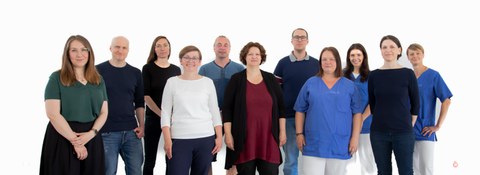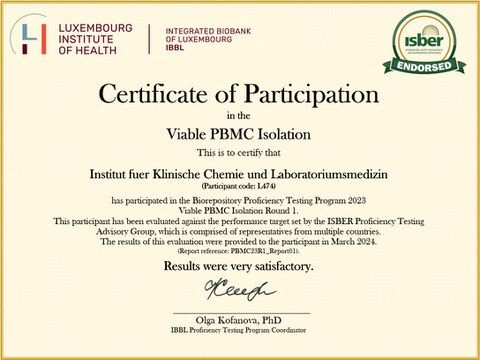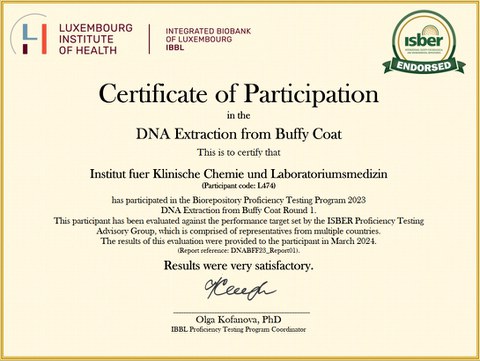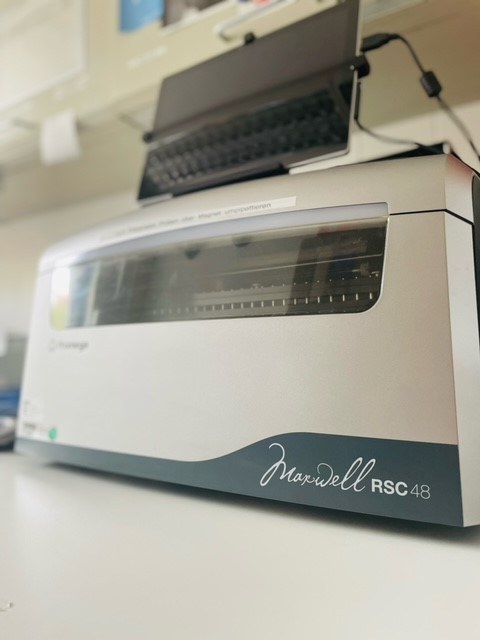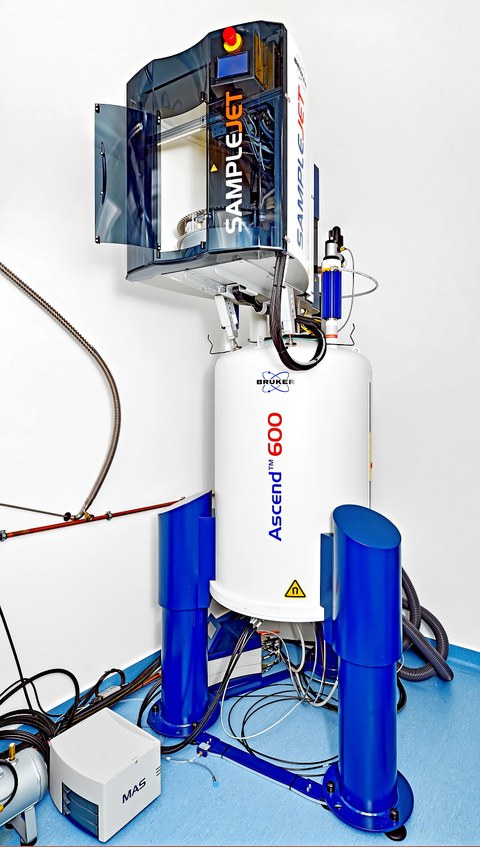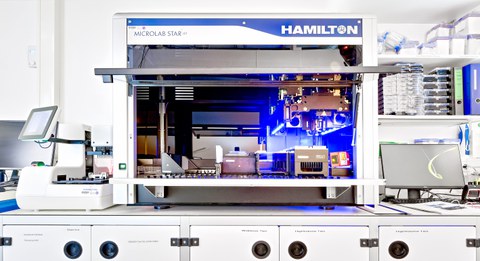Liquid samples
The Integrated Liquid Biobank (DILB) is a central liquid biobank that is an integral part of the Institute of Clinical Chemistry and Laboratory Medicine (IKL). Here, liquid biospecimen such as blood, urine, serum, bone marrow, cerebrospinal fluid and other sample types are processed automatically. They are stored in fully automated nitrogen storage systems.
Here you will find all collections that are currently available to you.
The following sample types can be processed in the DILB:
Aliquoting of
- EDTA blood for plasma and buffy coat (Sarstedt)
- Citrate blood for plasma (Sarstedt)
- (Blood) serum (Sarstedt, gel)
- Urine (Sarstedt)
- Cerebrospinal fluid (Sarstedt)
- Blood for cell-free DNA plasma (PaxGene, Streck)
- Other material after consultation
Cell isolation from
- EDTA blood (Sarstedt)
- EDTA bone marrow
- Li-Hep bone marrow
- Other material after consultation
The processing times of the DILB are as follows:
Monday to Friday 07:00 to 16:00 (Friday samples (cells) until 12:30)
so that final processing can take place on the same day.
The following contact persons are available to answer your questions:
Laboratory manager: Dr. Alexander Funk (0351/458-11319)
Project management: Dr. Susann Witt (0351/458-11509)
Please note the following workflow for the initial sample submission:
Submission of liquid biospecimen to the Dresden Integrated Liquid Biobank (DILB) // Institute for Clinical Chemistry and Laboratory Medicine (IKL) is only possible after your clinic/ward has been connected to a predefined collection. Please contact us, we will be happy to advise you on biobanking for your research project.
The procedure is as follows:
- Fill out the Broad Consent or Study Consent application form
- Discussion on fine-tuning/feasibility
- Internal preparatory steps for the start of the collection
- Start approx. 2-4 weeks after fine-tuning meeting
If you are interested in samples, you can access various collections and services.
This is done according to a standardized sample submission process. Main condition is that you submit an ethics application for the relevant research project.
The procedure is as follows:
- Complete and submit the sample request form to
- Check for completeness
-
Broad Consent:
Forwarding, review and decision on sample submission by the utilization and allocation committee of BioBank Dresden (consisting of sample submitting specialists and scientists) within 10 working days
Study Consent:
individual agreement -
Sample handover (collection, shipment) after personal arrangement
In addition to classic biobanking, we support you with other extraction and analysis methods such as nucleic acid isolation and NMR spectroscopy. We are also happy to support you in networking with cooperating laboratories and facilities for sample analysis.
Please contact us if you have any questions.
(Contact person: Dr. Heidi Altmann (0351/458-19795)
DNA/RNA isolation and quantification
Using the Maxwell® RSC 48 from PROGEMA, nucleic acids (DNA or RNA) 48 samples can simultaneously be isolated.The fully automated purification includes cell lysis, binding of nucleic acids to paramagnetic particles, washing steps and elution. Isolation is carried out using magnet-based kits.
NMR spectroscopy
NMR measurements(NMR spectroscopy at the IKL) can be used to determine the quality of biosamples and carry out scientific investigations.
The most important forms at a glance
Form for setting up a collection (broad consent)
Form for setting up a collection (study-specific consent)
Form for retrieving samples (Broad Consent)
Confirmation of user ethics applications
The liquid biospecimen are stored exclusively in the gas phase of liquid nitrogen within fully automated HS200 tanks from ASKION. Here, the samples are stored under robotic control at temperatures ranging from -150°C to -185°C and removed from storage as required. Our storage tanks are located in building 165.
Our tissue samples are currently stored in temperature-monitored -80°C freezers. In the future they will be stored together with the liquid samples in the automated ASKION tanks.
Aliquoting of the liquid samples takes place using the HAMILTON Easy Blood Starlet pipetting robot. With this system, a large number of different liquid samples such as whole blood, serum, urine and cerebrospinal fluid can be aliquoted parallel, standardized and efficiently.
Together with HAMILTON, a sterile robotic system has been developed with which mononuclear cells from blood or bone marrow (PBMCs, MNCs) can be isolated fully automatically, adjusted to specific cell numbers and collected in cryomedium. The system is a combination of the Easy Blood Star pipetting robot, a centrifuge, a gripping robot, a decapper and a Hepa Hood sterile filter system.
Technical details and validation data can be found in the following publication: Next Generation Biobanking: Employing a Robotic System for Automated Mononuclear Cell Isolation (DOI:10.1089/bio.2021.0181)
